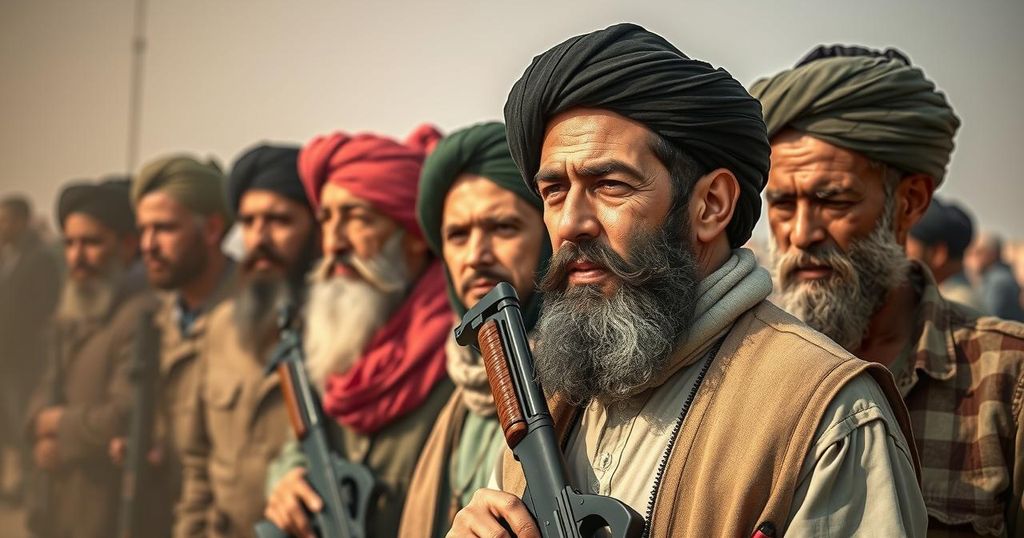Israel’s recent bombing of Houthi positions in Yemen represents an escalation in its military campaign against Iranian influence. This follows a broader pattern of conflict that has seen the Houthis rise as significant players in the Middle East, impacting global shipping and security dynamics. Despite facing various threats, the Houthis have strengthened their operational capabilities, displaying resilience in the ongoing regional strife.
On December 28, 2024, Israel escalated its military engagements by bombarding various locations in Yemen, including the airport in Sana’a. The strikes targeted the Houthi militant group (Ansar Allah), a key player in Iran’s network of proxies opposing Israel. UN Secretary-General António Guterres expressed grave concern about the intensifying violence which has reportedly resulted in significant casualties. This aggressive stance marks Israel’s increasing focus on the Houthis amidst its broader campaign against Iranian influence in the region, especially given the diminished capacities of other Iranian-aligned factions such as Hamas and Hezbollah.
Israel’s military operations are not new, having featured long-range missions to counter Houthi aggression, including retaliatory measures following a Houthi drone attack that impacted humanitarian operations. The recent bombings represent a significant escalation, marking the first direct assault on the capital Sana’a. Amid discussions in Israel regarding whether to target the remaining militant proxies or Iran itself, Prime Minister Benjamin Netanyahu affirmed, “We are determined to cut off this terrorist arm of Iran’s axis of evil.”
In early January 2024, U.S. and allied operations commenced to degrade Houthi capabilities, paralleling maritime security efforts intended to protect international shipping lanes disrupted by Houthi actions. The implications of Houthi aggression extend globally, as evident by changes in international shipping patterns resulting from escalated insurance premiums. The significant decline of Suez Canal transit calls highlights the challenges posed by the ongoing conflict.
Historically, the Houthis have maintained a hostile stance toward the United States and Israel while focusing on internal Yemeni dynamics. The trajectory of their engagement shifted dramatically following the events of October 7, 2023, when they declared their intent to counter Israeli actions in Gaza. Despite suffering substantial casualties due to prolonged warfare, the Houthis achieved strategic positioning in Northern Yemen, compelling Saudi Arabia and the United Arab Emirates to pursue negotiations to mitigate the conflict. Their recent declarations reiterate their resilience, bolstered by Iranian support albeit met with emerging threats from rival factions.
With the Israeli campaign’s escalation, the Houthis have emerged as a pivotal component of Iran’s resistance efforts against Israel. Increased collaboration with Iraq-based militias reflects their strategic imperative. This recent emphasis has elevated their profile within the Iranian proxy framework as they seek to strengthen their operational reach against Israel. The complex and shifting dynamics underscore the evolving nature of regional alliances and conflicts, positioning Ansar Allah firmly within the resistance axis.
The Houthis, officially known as Ansar Allah, are a Zaidi Shia-led militant group that has been involved in the Yemeni civil war since 2014. Initially focused on local grievances, their agenda expanded to opposing U.S. influence and Israeli actions, particularly after the 2023 conflict escalation. The group has received military aid from Iran, enabling them to challenge both Saudi Arabia and emerging threats within Yemen. Their strategic importance in Iran’s regional ambitions positions them as a key player in the broader geopolitical struggles involving Israel.
In conclusion, Israel’s military operations against the Houthis signify a critical juncture in the conflict, highlighting the Houthis’ central role in the Iranian strategy against Israel. The ongoing hostilities reflect not only regional power dynamics but also the significant implications for global shipping and security. As the Houthis continue to assert their newfound prominence in this geopolitical landscape, their actions will likely shape the future confrontations within the axis of resistance led by Iran.
Original Source: indianexpress.com






